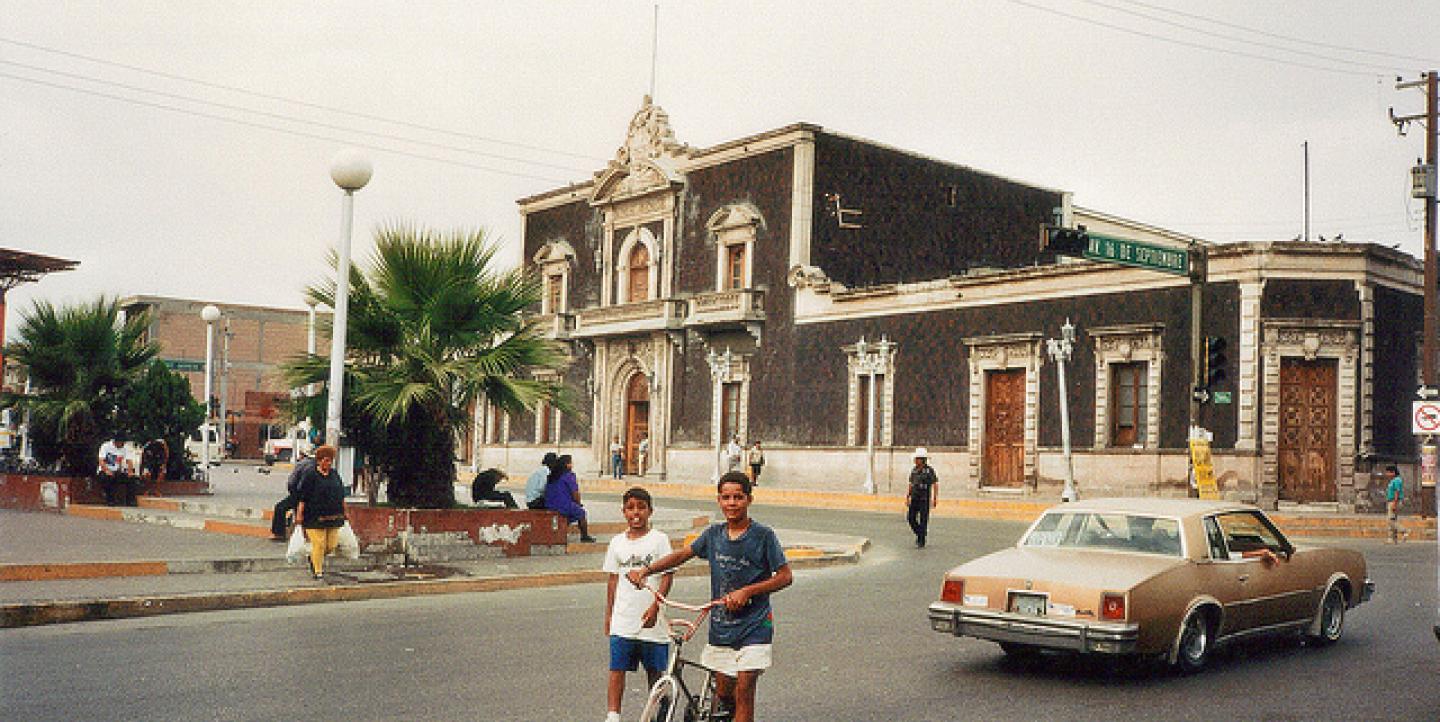Investigative journalist Sandra Rodríguez Nieto has spent her career covering corruption and failures of Mexico’s federal government and judicial system, as well as their effects on citizens. Chief among those effects, Rodríguez says, is the impact of impunity — the failure to pursue and prosecute crimes — on civil society. Her work has received numerous honors, including a 2011 Knight International Journalism Award.
Rodríguez’s just-published book, “The Story of Vicente, Who Murdered His Mother, His Father, and His Sister: Life and Death in Juárez,” is her most recent journalistic contribution regarding Mexico’s drug war and, in particular, its effects on the city of Ciudad Juárez.
She spoke with IJNet to discuss Vicente, the culture of impunity in Juárez and how Mexican journalism has been affected by the drug war.
IJNet: Many Americans who hear a story as “extreme” as Vicente's may develop an idea of the border that's seriously flawed. Based on your own experience, what do you think news readers and viewers need to know to understand the border zones better?
Rodríguez: Well, I believe Vicente's story reflects the normalcy of a violent city. The intention, in a certain sense, was to show that crimes are committed as the result of opportunities in countries without a rule of law, not because people [committing the crimes] are, in and of themselves, criminals. The purpose of the book is to show how impunity functions in the lives of people who have no previous relationship to crime. To me, this is a general situation that affects the entire city, criminals and non-criminals, and it contaminates all of us.
IJNet: More than one of your colleagues has been assassinated because of his or her journalistic work. Are you anxious about your own safety? How do you protect yourself?
Rodríguez: The main way I protect myself is by working and writing in the most objective manner possible, putting themes and people in all the possible contexts that help us to understand them, without judging anyone other than those who are obliged by the laws of this country to protect its citizens: the government. With this, I hope anyone who reads my work knows that the only thing I do is my journalistic work. This is my only form of professional protection.
Unfortunately, I feel that there is no way to protect the life of anyone in Mexico — neither journalists nor any other citizen — once someone decides to commit homicide. How do I deal with this hopelessness? I'm a Christian, I believe in God, and I try to cultivate that faith.
IJNet: The violence associated with narcotrafficking has obliged many journalists to work in a way that is in conflict with their training, opposed to their own values and preferences. What is the current state of journalism in Juárez and other [U.S.-Mexico] border zones?
Rodríguez: This is the most serious issue, and thank you for asking about it. In Juárez, and Mexico in general, we journalists were surprised by the escalation of violence, for which we were not in any way prepared, professionally speaking. Look, we weren't even immediately aware that we were in the middle of a war. We realized it little by little, each of us at a different moment, I think, and everyone took the precautions he or she could.
Some [journalists] in Júarez even went so far as to wear bulletproof vests, but later we realized that we could be ambushed and shot in the head, not just caught in crossfire. I sincerely believe that we Mexican journalists have shown tremendous courage in the vast majority of our work even without knowing exactly what we've been confronting: a war without defined parties, and us in the middle.
IJNet: What can — what should —the international community of journalists do to support their Mexican colleagues?
Rodríguez: Pay attention to what happens in Mexico, which purports to be a functional democracy, and raise your voice in every forum about the fact that homicide rates of journalists and the corresponding impunity do not correspond to a democratic country.
This interview has been condensed and edited.
Main image CC-licensed by Flickr via Daviddje.

